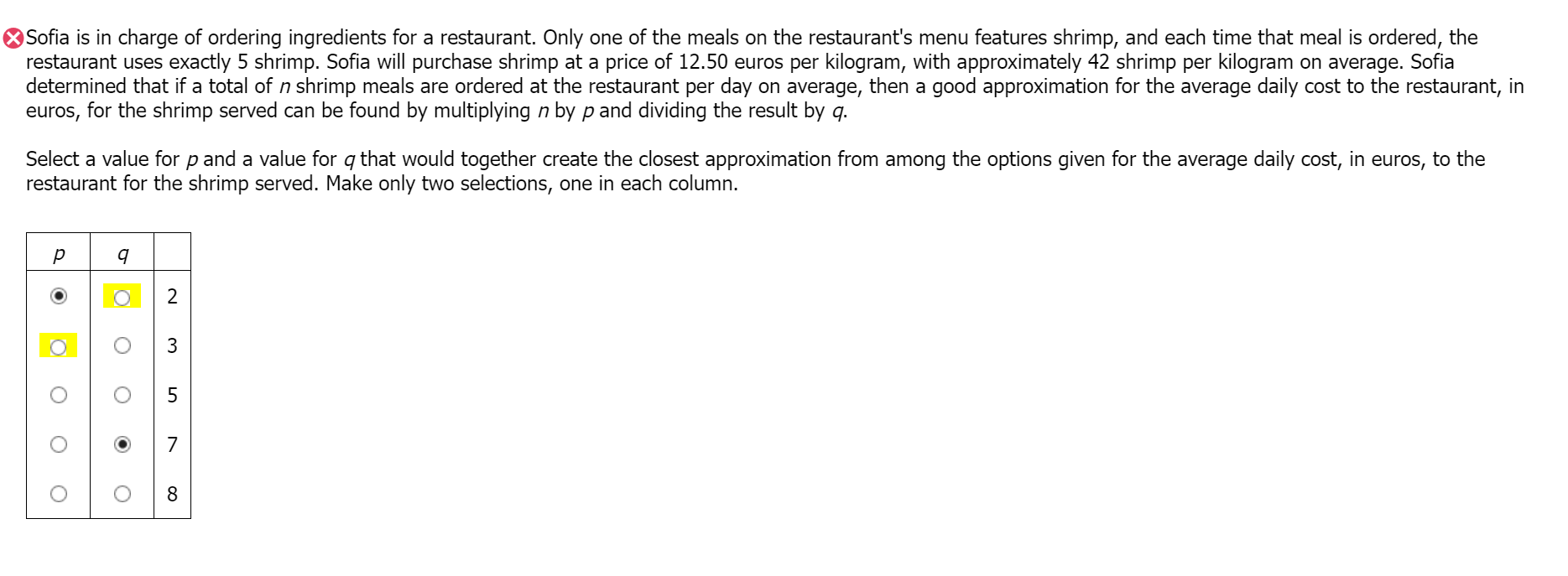Events & Promotions
|
|

GMAT Club Daily Prep
Thank you for using the timer - this advanced tool can estimate your performance and suggest more practice questions. We have subscribed you to Daily Prep Questions via email.
Customized
for You
Track
Your Progress
Practice
Pays
Not interested in getting valuable practice questions and articles delivered to your email? No problem, unsubscribe here.
- Nov 20
07:30 AM PST
-08:30 AM PST
Learn what truly sets the UC Riverside MBA apart and how it helps in your professional growth - Nov 20
01:30 PM EST
-02:30 PM IST
Learn how Kamakshi achieved a GMAT 675 with an impressive 96th %ile in Data Insights. Discover the unique methods and exam strategies that helped her excel in DI along with other sections for a balanced and high score. - Nov 22
06:30 AM PST
-08:30 AM PST
Let’s dive deep into advanced CR to ace GMAT Focus! Join this webinar to unlock the secrets to conquering Boldface and Paradox questions with expert insights and strategies. Elevate your skills and boost your GMAT Verbal Score now! - Nov 22
11:00 AM IST
-01:00 PM IST
Do RC/MSR passages scare you? e-GMAT is conducting a masterclass to help you learn – Learn effective reading strategies Tackle difficult RC & MSR with confidence Excel in timed test environment - Nov 23
11:00 AM IST
-01:00 PM IST
Attend this free GMAT Algebra Webinar and learn how to master the most challenging Inequalities and Absolute Value problems with ease. - Nov 24
07:00 PM PST
-08:00 PM PST
Full-length FE mock with insightful analytics, weakness diagnosis, and video explanations! - Nov 25
10:00 AM EST
-11:00 AM EST
Prefer video-based learning? The Target Test Prep OnDemand course is a one-of-a-kind video masterclass featuring 400 hours of lecture-style teaching by Scott Woodbury-Stewart, founder of Target Test Prep and one of the most accomplished GMAT instructors.
Originally posted by einstein801 on 04 Jul 2024, 20:45.
Last edited by Bunuel on 05 Jul 2024, 00:17, edited 1 time in total.
Last edited by Bunuel on 05 Jul 2024, 00:17, edited 1 time in total.
Formatted and meved to TPA forum.
Kudos
Bookmarks
p: 3
q: 2
Be sure to select an answer first to save it in the Error Log before revealing the correct answer (OA)!
Difficulty:
 95%
(hard)
95%
(hard)
Question Stats:
53% (02:57) correct 47%
(03:09)
wrong
47%
(03:09)
wrong  based on 760
sessions
based on 760
sessions
History
Date
Time
Result
Not Attempted Yet
Sofia is in charge of ordering ingredients for a restaurant. Only one of the meals on the restaurant's menu features shrimp, and each time that meal is ordered, the restaurant uses exactly 5 shrimp. Sofia will purchase shrimp at a price of 12.50 euros per kilogram, with approximately 42 shrimp per kilogram on average. Sofia determined that if a total of n shrimp meals are ordered at the restaurant per day on average, then a good approximation for the average daily cost to the restaurant, in euros, for the shrimp served can be found by multiplying n by p and dividing the result by q.
Select a value for p and a value for g that would together create the closest approximation from among the options given for the average daily cost, in euros, to the restaurant for the shrimp served. Make only two selections, one in each column.

GMAT-Club-Forum-eef1m84t.png [ 87.55 KiB | Viewed 3271 times ]
Select a value for p and a value for g that would together create the closest approximation from among the options given for the average daily cost, in euros, to the restaurant for the shrimp served. Make only two selections, one in each column.
Attachment:
GMAT-Club-Forum-eef1m84t.png [ 87.55 KiB | Viewed 3271 times ]
| p | q | |
| 2 | ||
| 3 | ||
| 5 | ||
| 7 | ||
| 8 |
ShowHide Answer
Official Answer
p: 3
q: 2
Originally posted by HarshavardhanR on 17 Jul 2024, 02:06.
Last edited by HarshavardhanR on 30 Oct 2024, 21:51, edited 1 time in total.
Last edited by HarshavardhanR on 30 Oct 2024, 21:51, edited 1 time in total.
Kudos
Bookmarks
General Discussion
Kudos
Bookmarks
unicornilove
The information that comes out..
1) Every shrimp meal has 5 shrimps, so n meals would have 5n shrimps.
2) Almost 42 shrimps come in one kg @ Euros 12.5 per kg, so 1 shrimp would come for \(\frac{12.5}{42} \) ~ \( \frac{12.6}{42} = 0.3\) ( We are approximating the answer)
3) Thus, 5n will cost 5n*0.3 or 1.5n
Look for \(\frac{p}{q}\) that gives a value closer to 1.5
\(\frac{3}{2} = 1.5\), so p=3 and q=2
Attachment:
GMAT-Club-Forum-1v777ger.png [ 87.55 KiB | Viewed 3205 times ]
















